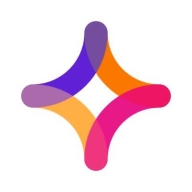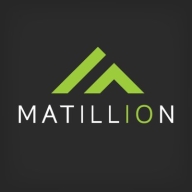

Jitterbit Harmony and Matillion ETL compete in the ETL and data integration market. While both offer unique advantages, Matillion ETL is recognized for its advanced capabilities and scalability, making it particularly suitable for complex integration projects.
Features: Jitterbit Harmony offers intuitive data integration, seamless application connectivity, and real-time processing. Matillion ETL provides powerful data transformation tools, cloud-native architecture, and strong performance metrics for complex workflows.
Room for Improvement: Jitterbit Harmony could enhance its data transformation capabilities, expand application connectivity options, and improve scalability for larger datasets. Matillion ETL could benefit from streamlined onboarding processes, simplified user interface for beginners, and enhanced support for third-party integrations.
Ease of Deployment and Customer Service: Jitterbit Harmony is known for easy deployment and reliable support, ensuring a smooth setup experience. Matillion ETL offers a flexible deployment model with excellent technical documentation, aiding customers in cloud environment adaptation.
Pricing and ROI: Jitterbit Harmony is noted for competitive pricing and strong potential for quick ROI due to efficient integration processes. In contrast, Matillion ETL may require a higher initial investment but delivers substantial long-term value through its advanced capabilities and scalability.


Jitterbit Harmony is a comprehensive platform for data integration and API management, enabling seamless synchronization and automation across cloud-based and on-premises applications.
Users leverage Jitterbit Harmony to integrate systems like ERP and CRM applications, simplifying complex data workflows and enhancing automation. It supports efficient data migration and ensures smooth connectivity, handling diverse integration needs and helping streamline business processes. Users emphasize its drag-and-drop functionality and extensive templates, which contribute to its robust performance. However, improvements are needed in data mapping, error message clarity, and documentation, especially when dealing with large data volumes.
What are the key features of Jitterbit Harmony?Companies across retail, manufacturing, healthcare, and finance sectors use Jitterbit Harmony to integrate critical applications and automate workflows. In retail, it connects inventory systems with sales platforms, reducing manual effort. Manufacturers sync their ERP systems with supply chain software, optimizing operations. Healthcare organizations integrate patient management systems with insurance databases, streamlining patient care. Financial institutions use it to connect accounting software with banking systems, ensuring real-time financial data exchange.
Matillion ETL is a powerful tool for extracting, transforming, and loading large amounts of data from various sources into cloud data warehouses like Snowflake. Its ability to load data dynamically and efficiently using metadata is a standout feature, as is its open-source ETL with good performance and high efficiency.
The solution has a graphical interface for jobs, is easily adjustable and extensible, and allows for scheduling and error reporting. Matillion ETL has helped organizations move to a cloud-based solution, bridge the gap between on-premises and on-cloud, and perform complex migration projects.
We monitor all Cloud Data Integration reviews to prevent fraudulent reviews and keep review quality high. We do not post reviews by company employees or direct competitors. We validate each review for authenticity via cross-reference with LinkedIn, and personal follow-up with the reviewer when necessary.